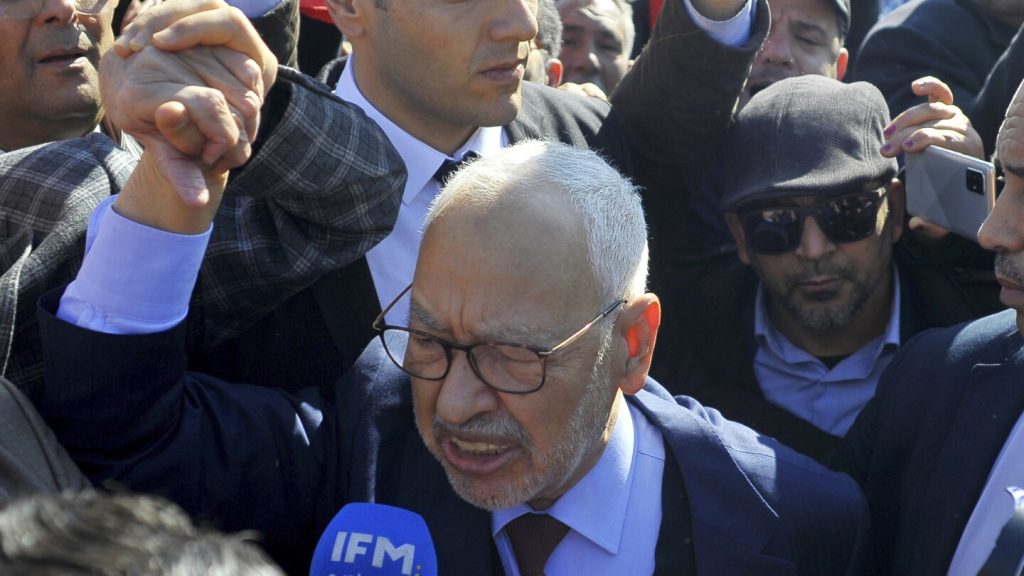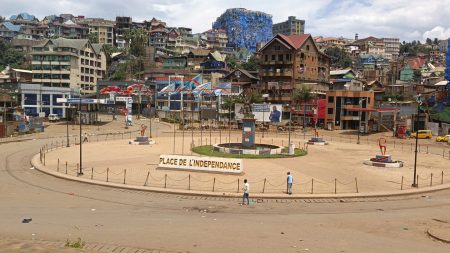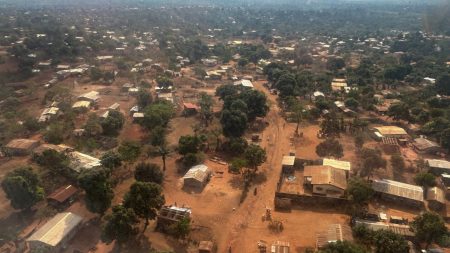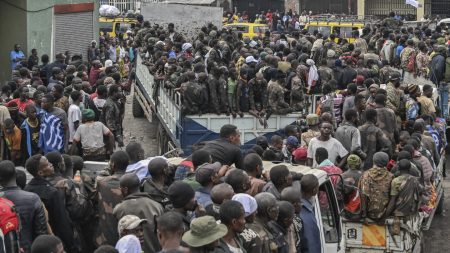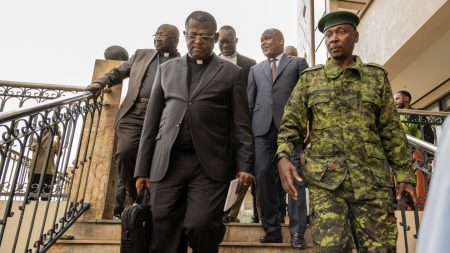Tunisia’s Democratic Backslide: The Targeting of Critics and the Erosion of Judicial Independence
Introduction: A Troubling Trend in Tunisian Politics
In recent weeks, Tunisia has witnessed a concerning escalation in the targeting of political opponents and critics of President Kais Saied. A court in Tunisia handed down harsh sentences to several high-profile figures, including the renowned opposition leader Rached Ghannouchi, who has been imprisoned for nearly two years. This move has been met with widespread criticism from human rights groups, media unions, and opposition parties, who argue that these sentences are part of a broader effort to silence dissent and consolidate power under President Saied’s rule. The sentences, which total over 760 years in prison for politicians, bloggers, and former government officials, have sparked fears of a return to authoritarianism in a country that once symbolized hope for democracy in the Arab world.
The Sentencing of Opposition Leaders: A Blow to Political Pluralism
Among those sentenced was 83-year-old Rached Ghannouchi, a co-founder of the Islamist movement Ennahda and Tunisia’s former Assembly Speaker. Ghannouchi, who has been in prison for nearly two years, was handed an additional 22 years on charges of undermining state security. His trial was widely condemned as politically motivated, with Ghannouchi himself boycotting the proceedings. Ennahda, the political party he co-founded, issued a strong statement denouncing the trial as a violation of basic human rights and freedoms, and accused the judiciary of being politicized. The National Salvation Front, a coalition of opposition parties that includes Ennahda, described the sentences as a dark moment for Tunisia’s judicial branch, which has seen its independence eroded under President Saied’s rule.
The Role of the Judiciary in Consolidating Power
The sentences handed down by the Tunisian court have raised serious concerns about the independence of the judiciary in the country. Critics argue that the court has become a tool for the executive branch to target political opponents and silence dissent. Ahmed Nejib Chebbi, a leader of the National Salvation Front, described the court as a "specialized tool for issuing harsh sentences against politicians." This perception is reinforced by the fact that President Saied has taken significant steps to consolidate power since coming to office in 2019, including suspending parliament, rewriting the constitution, and arresting critics. The judiciary, which was once seen as a pillar of Tunisia’s young democracy, now appears to be under the influence of the executive branch, leading to a erosion of trust in the rule of law.
The Case Against the Media: Press Freedom Under Threat
The sentences also extended to a prominent journalist, Chadha Haj Mubarak, who was sentenced to five years in prison. The National Syndicate of Tunisian Journalists denounced her sentencing as a direct attack on press freedom and called for her immediate release. Mubarak’s attorney, Souhail Medimegh, argued that his client was being punished solely for her journalism, highlighting the growing climate of fear and intimidation facing journalists in Tunisia. This case is part of a broader pattern of targeting media professionals who are critical of President Saied’s government. The charges against Mubarak and others stem from a 2019 case involving a media company that provided services during that year’s presidential elections. Prosecutors accused those involved of defamation, spreading falsehoods, money laundering, undermining state security, and illegally accepting funds from abroad. Ennahda, which was also implicated in the case, has consistently denied any wrongdoing and has maintained that it never contracted the services of the media company in question.
Human Rights Groups Sound the Alarm: A Return to Authoritarianism
The sentences have been widely condemned by human rights groups, who argue that they represent a dangerous escalation in President Saied’s efforts to suppress dissent. saied won a second term in office last October in a landslide election, but his leading opponents, including Ghannouchi, were either in prison or prevented from participating in the electoral process. This has led to concerns that Tunisia is sliding back into the kind of authoritarianism that characterized the rule of Zine El Abidine Ben Ali, the dictator overthrown during the 2011 Arab Spring uprising. In a statement, Ennahda said that the rulings bring Tunisia back to a period its people sought to leave behind through their revolution. The party warned that the sentences mark a return to a era of repression and undermine the progress Tunisia made in the years following the revolution, when it was seen as a success story for democracy in the region.
Conclusion: The Future of Democracy in Tunisia
The sentences handed down by the Tunisian court are a stark reminder of the challenges facing democracy in Tunisia. The targeting of political opponents, journalists, and critics of President Saied has raised serious concerns about the future of human rights, press freedom, and the rule of law in the country. As Tunisia continues down this troubling path, the international community is urging President Saied to reverse course and respect the democratic principles that were once the hallmark of Tunisia’s transition. The sentences also serve as a reminder of the resilience of the Tunisian people, who have a long history of fighting for their rights and freedoms. While the road ahead is uncertain, the hope remains that Tunisia can once again serve as a beacon of democracy in the Arab world, where political pluralism and human rights are protected and cherished.





